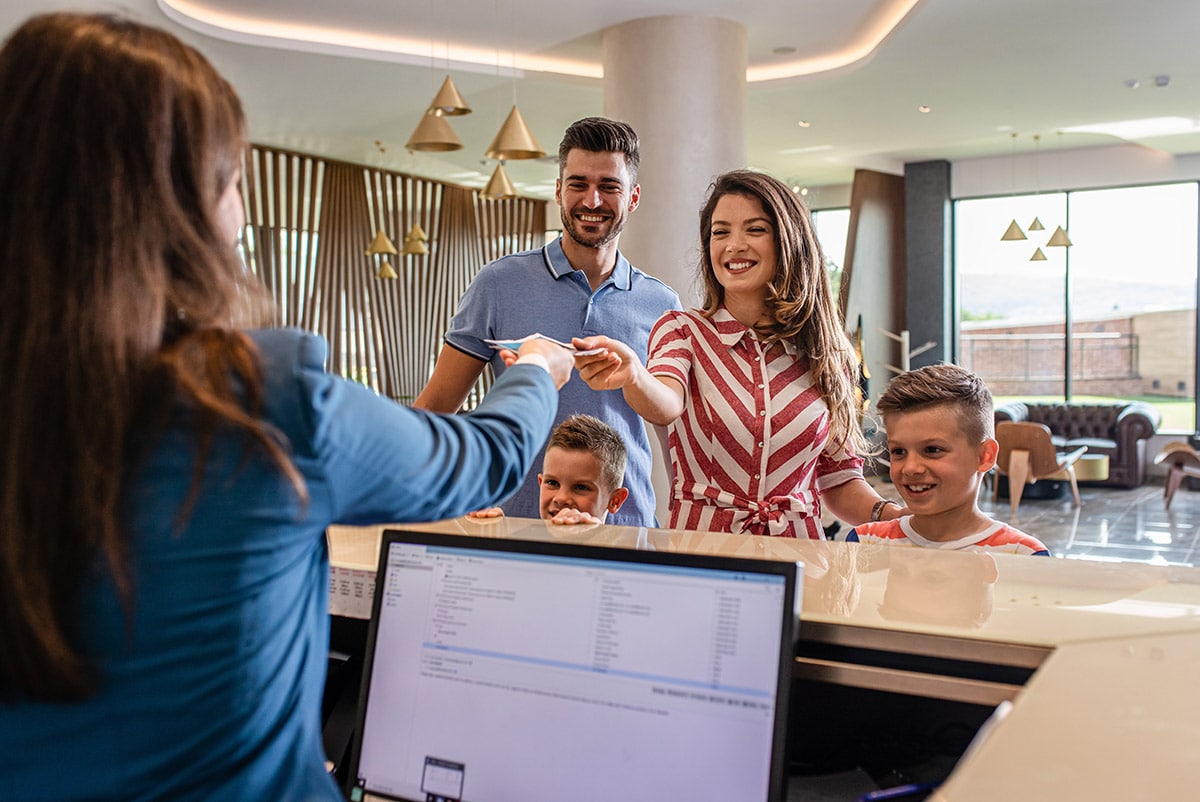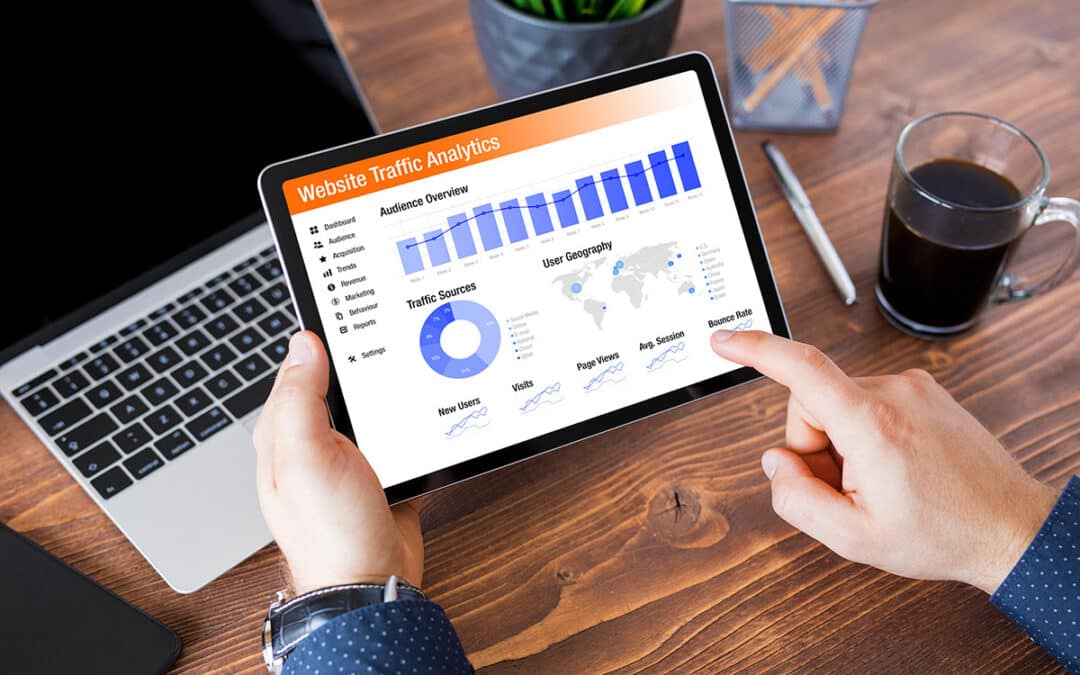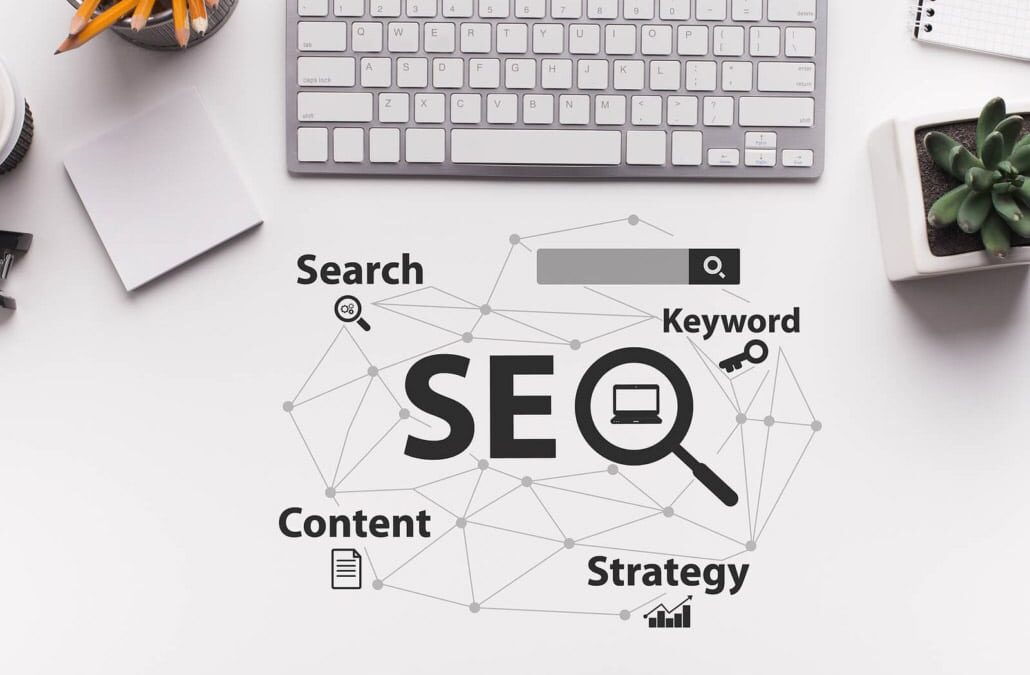Digital marketing for hotels has evolved significantly over the last 10 years due to advancements in technology, increased reliance on data analytics for personalized marketing, and the growing importance of social media and mobile platforms in shaping guest experiences. We have helped our clients keep pace with the changes in digital marketing for hotels, leading to incredible ROAS and higher occupancy rates.
The hospitality industry faces unique challenges and opportunities in connecting with prospective guests and enhancing their experience even before they walk through the doors. Hotels and resorts need to leverage a variety of digital marketing strategies and tactics to stand out, attract more guests, increase spending on property, and win their loyalty and advocacy. This article explores essential digital marketing for hotels that can transform how hotels engage with potential customers, build lasting relationships, and drive bookings.
In this jam-packed blog, we’ll explore a variety of strategies and tactics for digital marketing for hotels including:
✔️ Developing a comprehensive digital marketing strategy
✔️Market analysis and audience segmentation
✔️Optimizing your website for SEO
✔️Engaging content marketing
✔️Leveraging social media
✔️Effective email marketing
✔️Forming influencer partnerships
✔️Using digital marketing tools effectively
✔️Utilizing paid advertising and retargeting
✔️Managing online reviews and reputation
Crafting Effective Strategies for Digital Marketing for Hotels
To craft effective digital marketing for hotels, start by setting clear, measurable objectives. What do you want to achieve? Whether it’s increasing direct bookings, boosting online visibility, or enhancing guest engagement, each goal will dictate different tactics.
SMART goals are specific, measurable, achievable, relevant, and time-bound objectives that help guide successful digital marketing for hotels by providing clear milestones and accountability. Here are four examples of SMART goals:
- Increase Hotel Website Traffic: Boost the hotel’s website traffic by 25% within the next six months through SEO optimization and content marketing strategies.
- Enhance Social Media Engagement: Grow social media engagement by 30% by the end of the year by regularly posting interactive content and engaging directly with followers on Instagram and Facebook.
- Improve Email Marketing Performance: Achieve a 20% open rate and a 10% click-through rate in email marketing campaigns within the next three months by using personalized content and targeted promotions.
- Boost Direct Bookings: Increase direct bookings through the hotel’s website by 15% over the next quarter by implementing targeted PPC advertising campaigns and optimizing the booking process for usability.
Developing a Strong Brand Identity as Part of Your Digital Marketing for Hotels
Your hotel’s brand identity should be unmistakable and consistent across all digital platforms. From the tone of your social media posts to the design of your email campaigns, every piece of content should reflect your hotel’s personality and values, appealing directly to your target demographic.
Consistency in your digital marketing for hotels reassures guests about the quality and type of experience they can expect, fostering trust and loyalty—crucial factors in a competitive market. This alignment across all channels not only strengthens your brand but also supports a more coherent guest experience.
Market Analysis and Audience Segmentation as Part of Your Digital Marketing for Hotels
Successful digital marketing for hotels begins with understanding your market and audience. Analyze current trends in the hospitality industry, dissect your first-party data, know your competition, and clearly define your target audience. Segment this audience to tailor your marketing strategies more precisely, enhancing the relevance and impact of your campaigns.
As the digital agency for Rancho Santana (Ranchosantana.com), we conducted a thorough market analysis to identify current trends and preferences within the hospitality industry. This involved examining competitive strategies and pinpointing gaps in the market that Rancho Santana could exploit.
Following the analysis, we implemented precise audience segmentation. We identified key demographics that were most likely to book a stay, such as adventure-seeking millennials and families looking for unique vacation destinations with a variety of activities. By tailoring our digital marketing messages to resonate with these specific groups, we successfully increased bookings. For the adventure-seeking millennials, we highlighted the exclusive adventure activities and unique local experiences offered by Rancho Santana, while for families, our focus was on promoting the safety, spaciousness, and family-friendly aspects of the resort. This strategic segmentation allows us to craft targeted campaigns that speak directly to the needs and desires of each segment, leading to a significant uptick in direct bookings.
Key Components Digital Marketing Hotel Strategies
Digital marketing for hotels requires a robust, multifaceted full-funnel approach incorporating a range of critical components that work in synergy to enhance online visibility, engage potential guests, and drive bookings.
Optimize Your Hotel’s Website for SEO
Your hotel’s website is often the first point of contact with potential guests. Ensure it is optimized for search engines to improve visibility. Focus on mobile-friendliness, fast loading times, and content that incorporates relevant keywords without sacrificing readability.
For Rancho, our SEO strategy was meticulously crafted to increase rankings on specific, highly relevant keywords aimed at drawing qualified traffic to the site. We began by conducting in-depth keyword research to identify terms that potential guests frequently search for when looking for accommodations and experiences offered by Rancho Santana. This guided the creation of optimized content that not only improved search engine rankings but also enhanced user engagement on the website.
In conjunction with SEO, Rancho Santana employed a full-funnel marketing approach, integrating other digital tactics such as targeted email campaigns, social media advertising, and retargeting efforts to nurture leads through the customer journey. This comprehensive strategy ensured that once visitors arrived at the site via SEO, they were engaged with compelling content and offers, moving them smoothly toward booking. This holistic approach to digital marketing for hotels maximizes the effectiveness of each channel, ensuring a higher ROI for digital marketing efforts.
Content Marketing for Hotels
Develop a content strategy that includes diverse formats, such as blogs, videos, and infographics. This content should provide real value to your audience, highlighting the unique aspects of your hotel and local attractions. Repurpose this content across multiple channels such as social media platforms, your hotel website, and paid advertising to get the most out of each content asset.
Digital Advertising for Hotels
Invest in PPC campaigns and use retargeting strategies to keep your hotel top-of-mind for potential guests who have shown interest but have not yet booked.
Paid advertising, particularly PPC (Pay-Per-Click) campaigns, is a vital component of comprehensive digital marketing for hotels because it allows for precise targeting and immediate visibility in search engine results. PPC campaigns are a particularly effective strategy for digital marketing for hotels because they can be tailored to appear when potential guests are actively searching for accommodations in specific locations or looking for unique experiences provided by the hotel.
Our approach to PPC campaigns for hotels involves several strategic steps:
- Keyword Research: We conduct detailed keyword research to identify terms that potential guests are likely to use when searching for luxury accommodations and unique travel experiences. This helps ensure that our ads appear to the right audience at the right time.
- Ad Customization: We create compelling ad copy that highlights unique selling points of our client hotel properties, such as luxurious amenities, beautiful locations, or exclusive offers. Ads are customized for different segments, such as families, couples, or adventure travelers, to increase relevance and click-through rate.
- Landing Page Optimization: Each ad is linked to a specifically designed landing page that corresponds with the ad’s message. These pages are optimized for conversions, featuring clear calls-to-action, attractive visuals, and all necessary information to encourage bookings.
Digital advertising for hotels can be expensive so we employ specific tactics to keep bid costs low and drive qualified visitors:
- Ad Scheduling: By analyzing data, we identify peak times when potential guests are more likely to search for hotels and plan trips. We schedule our ads to run during these periods to maximize visibility and engagement, while also opting out during low-traffic times to conserve budget.
- Geo-Targeting: Ads are geo-targeted to audiences in locations identified as primary markets for our hotel clients or in areas from which the hotel has historically seen high booking rates. This ensures that we are spending our budget on markets that are more likely to convert.
- Use of Negative Keywords: To improve campaign efficiency and reduce wasted spend, we actively use negative keywords. This prevents ads from showing up in irrelevant searches, ensuring that only potential customers looking for related services see our ads. If you run a luxury, high-end resort, you don’t want people that are looking for “cheap” hotels. What you don’t show up for is just as important as when you do appear.
- Quality Score Optimization: We continuously optimize ads for higher Quality Scores by improving the ad copy, landing pages, and relevance to the search queries. A higher Quality Score leads to lower costs per click and better ad positions.
- Integrating PPC with Other Tactics: PPC is not used in isolation but is integrated with SEO, content marketing, social media, and email marketing strategies to create a unified marketing approach. For example, insights gained from PPC keyword performance can inform SEO strategies and content creation, while successful PPC ad copy might be adapted for use in email marketing or social media. This full-funnel approach ensures that each part of the marketing strategy supports the others, driving higher overall efficiency and effectiveness in attracting bookings.
Hotel Online Reputation Management as Part of Digital Marketing for Hotels
Encourage guests to leave reviews and actively engage with their feedback online. A positive reputation builds trust and can significantly influence booking decisions.
Utilizing Social Media and Email to Driving Bookings and Enhanced Guest Engagement
Leverage the power of social media to create a dynamic presence that interacts directly with potential guests. Simultaneously, use email marketing to send personalized, targeted messages that draw past guests back and attract new ones.
Platforms like Instagram, Facebook, and TikTok are ideal for:
- Showcasing Your Property: Use high-quality visuals to highlight your hotel’s best features.
- Sharing Guest Experiences: Encourage guests to share their stories and tag your hotel.
- Engaging with Followers: Maintain active communication with your audience to foster a sense of community and responsiveness.
- Influencer Partnerships: Collaborate with travel influencers to showcase your hotel to a broader audience. Their endorsements can lead to increased interest and bookings.
Digital Marketing for Resorts: Be Uniquely You
When it comes to resorts, digital marketing must spotlight the unique experiences they offer, which go beyond the typical hotel stay. High-quality visuals and captivating narratives play a crucial role in this strategy. For instance, showcasing exclusive tours, wellness retreats, adventure activities, and gourmet dining through stunning images and videos can significantly attract those searching for unique vacation options. Additionally, employing content marketing to tell compelling stories about the resort can deeply resonate with potential guests. These stories might include detailed blog posts about local culture, nature explorations, and specific activities available at the resort, as well as testimonials from past guests who have enjoyed these unique offerings. Such content helps potential visitors vividly imagine themselves experiencing what your resort has to offer, thus fostering a connection even before they book their stay.
Further enhancing community engagement, resorts can leverage user-generated content by encouraging guests to share their experiences on social media using designated hashtags. This strategy not only provides authentic content that new guests can trust but also fosters a stronger online community. Reposting these personal stories and images underscores the authenticity of the guest experiences, providing prospective visitors with genuine insights and encouraging further interactions and bookings.
Important Digital Marketing Tools for Hotels
Certain tools are indispensable for crafting an effective strategy. Customer Relationship Management (CRM) systems, such as Salesforce or HubSpot, are vital for tracking leads, customer interactions, and conversions from digital marketing for hotels. These systems help marketers understand the customer journey from initial contact to post-stay follow-ups, allowing for refined targeting and improved customer service. Similarly, Content Management Systems (CMS) with robust analytics capabilities, like WordPress integrated with plugins such as Google Analytics, play a crucial role. They provide valuable insights into content performance, including page views, social shares, and direct contributions to booking rates, which guide content strategy and website optimization.
Conversion Rate Optimization (CRO) tools like Optimizely, Unbounce, or HubSpot offer the ability to run A/B tests on various elements of a website. This testing can reveal which versions of a webpage perform best in terms of converting visitors into booked guests, making them crucial for maximizing conversion rates.
Heat mapping tools such as Hotjar or Crazy Egg offer visual representations of how users interact with a website—where they click, how far they scroll, and what they ignore—providing invaluable data that can be used to enhance the user experience and increase booking likelihood. These tools collectively equip hotel marketers with the necessary resources to refine their digital presence and optimize interactions to drive bookings effectively.
Bullseye Strategy’s Role in Elevating Your Hotel’s Digital Marketing
At Bullseye Strategy, we specialize in tailoring digital marketing solutions to the unique needs of the hospitality industry. Our expertise can help your hotel not only meet but exceed its marketing goals, enhancing both visibility and guest satisfaction.
Contact us today to discover how we can help you transform your hotel’s digital marketing strategy and drive more bookings.








